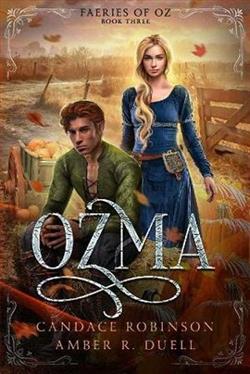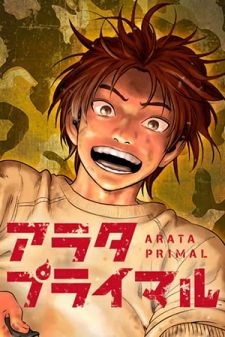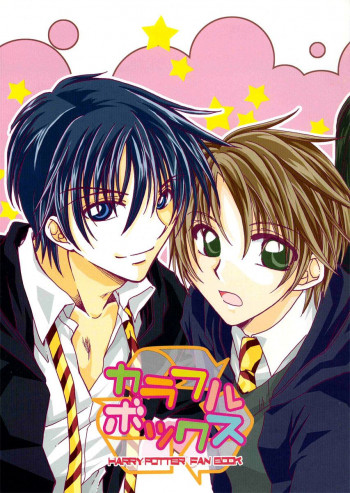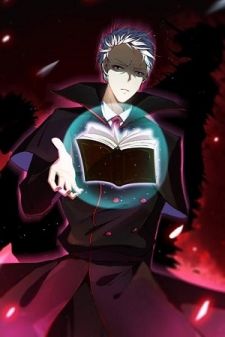Martial Peak Reviews
Candace Robinson's Ozma is a captivating reimagining of the classic Land of Oz, weaving a tale that is both familiar and refreshingly new. The novel delves into themes of identity, transformation, and the relentless pursuit of power, all while exploring the complexities of love and redemption. Robinson's narrative is a rich tapestry that invites readers to journey alongside her characters as they navigate a world that is as enchanting as it is perilous.
At the heart of Ozma is the titular character, who is introduced to readers as a figure of profound transformation. Abducted at birth by the witch Mombi and subjected to a spell that alters her very identity, Ozma's journey is one of self-discovery and reclamation. Her struggle to break free from the curse and embrace her true self as the Queen of Oz is a powerful exploration of identity and autonomy. Robinson skillfully portrays Ozma's evolution, capturing the nuances of her internal conflict and her eventual empowerment. The character's resilience and determination are inspiring, making her a compelling protagonist whose journey resonates deeply with readers.
Complementing Ozma's narrative is the story of Jack, another victim of Mombi's cruelty. Jack's character arc is equally engaging, as he grapples with loss and betrayal. His belief that Ozma has died leads him down a path of despair, yet it is his enduring love for her that ultimately fuels his resolve to escape Mombi's clutches. Robinson's portrayal of Jack is layered and empathetic, highlighting his vulnerabilities and strengths in equal measure. The dynamic between Ozma and Jack is central to the novel, and their reunion is a poignant moment that underscores the themes of love and redemption.
The novel's antagonist, the Wizard, is a figure of malevolence and ambition. His desire to harness Ozma's power for his own ends positions him as a formidable foe, and Robinson crafts his character with a chilling intensity. The Wizard's machinations serve as a catalyst for much of the novel's conflict, driving the narrative forward and heightening the stakes for Ozma and Jack. The tension between the protagonists and the antagonist is palpable, creating a sense of urgency that propels the story toward its climactic conclusion.
Robinson's world-building is another standout aspect of Ozma. The Land of Oz is depicted with vivid detail, from its lush landscapes to its darker, more sinister corners. The author's descriptive prose brings the setting to life, immersing readers in a world that is both magical and treacherous. The novel's atmosphere is further enhanced by Robinson's exploration of the fae, whose presence adds an element of mystique and danger to the narrative. The fae's role in Ozma and Jack's lives is intricately woven into the plot, serving as both a source of conflict and a means of resolution.
Thematically, Ozma delves into the nature of power and its corrupting influence. The Wizard's insatiable hunger for control is juxtaposed with Ozma's quest for self-empowerment, creating a compelling dichotomy that underscores the novel's central conflict. Robinson examines the ways in which power can be wielded for both good and ill, prompting readers to consider the ethical implications of its use. This exploration of power dynamics is both timely and thought-provoking, adding depth to the narrative and inviting reflection.
In terms of character development, Robinson excels in crafting multidimensional characters whose journeys are marked by growth and transformation. Ozma and Jack's evolution is particularly noteworthy, as both characters confront their past traumas and emerge stronger for it. Their resilience in the face of adversity is inspiring, and their eventual triumph over the forces that seek to oppress them is a testament to the power of love and determination. The supporting characters, too, are well-developed, each contributing to the richness of the story and the complexity of the world Robinson has created.
Comparatively, Ozma shares thematic similarities with other reimagined fairy tales, such as Gregory Maguire's Wicked and Marissa Meyer's Lunar Chronicles. Like these works, Robinson's novel offers a fresh perspective on a beloved classic, infusing it with modern sensibilities and exploring deeper themes. However, Ozma distinguishes itself through its focus on identity and transformation, as well as its intricate character dynamics. Robinson's ability to balance action, emotion, and thematic depth makes Ozma a standout addition to the genre.
Overall, Candace Robinson's Ozma is a masterful reimagining of the Land of Oz, offering readers a tale that is both enchanting and thought-provoking. With its richly drawn characters, immersive world-building, and exploration of complex themes, the novel is a testament to Robinson's skill as a storyteller. Ozma is a must-read for fans of fantasy and reimagined fairy tales, as well as anyone seeking a story that is as emotionally resonant as it is thrilling. Robinson's novel is a journey worth taking, one that will linger in the minds of readers long after the final page is turned.








![A Deal With My Fake Husband [Official]](/upload/pic/manga/a-deal-with-my-fake-husband--official-.jpg)















Reviews 0
Post a Reviews: